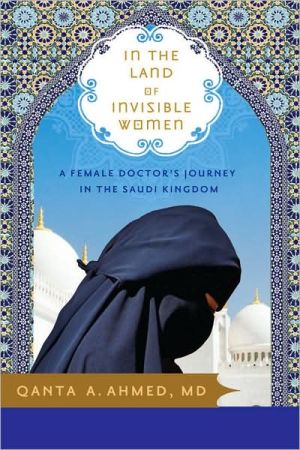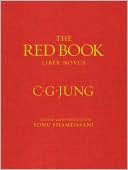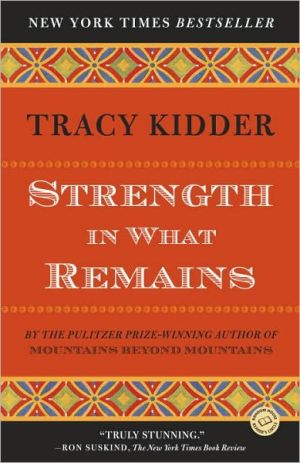In the Land of Invisible Women: A Female Doctor's Journey in the Saudi Kingdom
"In this stunningly written book, a Western trained Muslim doctor brings alive what it means for a woman to live in the Saudi Kingdom. I've rarely experienced so vividly the shunning and shaming, racism and anti-Semitism, but the surprise is how Dr. Ahmed also finds tenderness at the tattered edges of extremism, and a life-changing pilgrimage back to her Muslim faith." - Gail Sheehy\ The decisions that change your life are often the most impulsive ones.\ Unexpectedly denied a visa to remain...
Search in google:
The decisions that change your life are often the most impulsive ones. Publishers Weekly This memoir is a journey into a complex world readers will find fascinating and at times repugnant. After being denied a visa to remain in the U.S., British-born Ahmed, a Muslim woman of Pakistani origin, takes advantage of an opportunity, before 9/11, to practice medicine in Saudi Arabia. She discovers her new environment is defined by schizophrenic contrasts that create an "absurd clamorous clash of modern and medieval.... It never became less arresting to behold." Ahmeda's introduction to her new environment is shocking. Her first patient is an elderly Bedouin woman. Though naked on the operating table, she still is required by custom to have her face concealed with a veil under which numerous hoses snake their way to hissing machines. Everyday life is laced with bizarre situations created by the rabid puritanical orthodoxy that among other requirements forbids women to wear seat belts because it results in their breasts being more defined, and oppresses Saudi men as much as women by its archaic rules. At times the narrative is burdened with Ahmeda's descriptions of the physical characteristics of individuals and the luxurious adornments of their homes but this minor flaw is easily overlooked in exchange for the intimate introduction to a world most readers will never know. (Sept.)Copyright © Reed Business Information, a division of Reed Elsevier Inc. All rights reserved.
I returned to Khalaa Tarfa, my first patient in the Kingdom. She was a Bedouin Saudi well into her seventies, though no one could be sure of her age (female births were not certified in Saudi Arabia when she had been born). She was on a respirator for a pneumonia which had been slow to resolve. Comatose, she was oblivious to my studying gaze. A colleague prepared her for the placement of a central line (a major intravenous line into a deep vein). \ Her torso was uncovered in anticipation.. Another physician sterilized the berry brown skin with swathes of iodine. A mundane procedure I had performed countless times, in Saudi Arabia it made for a starling scene. I looked up from the sterilized field which was quickly submerging the Bedouin body under a disposable sea of blue. Her face remained enshrouded in a black scarf, as if she was out in a market scurrying through a crowd of loitering men. I was astounded.\ Behind the curtain, a family member hovered, the dutiful son. Intermittently, he peered at us . He was obviously worrying, I decided, as I watched his slim brown fingers rapidly manipulating a rosary. He was probably concerned about the insertion of the central line, I thought, just like any other caring family member.\ Every now and again, he signaled vigorously, rapidly talking in Arabic to instruct the nurse. I wondered what he was asking about and how he could know if we were at a crucial step in the procedure. Everything was going smoothly; in fact soon the jugular would be cannulated. We were almost finished. What could be troubling him?\ Through my dullness, eventually, I noticed a clue. Each time the physician's sleeve touched the patient's veil, and the veil slipped, the son burst out in a flurry of anxiety. Perhaps all of nineteen, the son was instructing the nurse to cover the patient's face, all the while painfully averting his uninitiated gaze away from his mother's fully exposed torso, revealing possibly the first breasts he may have seen.\ I wondered about the lengths to which the son continued to veil his mother, even when she was gravely ill. Couldn't he see it was the least important thing for her now at this time, when her life could ebb away at any point? Didn't he know God was Merciful, tolerant and understanding and would never quibble over the wearing of a veil in such circumstances, or I doubted, any circumstances?\ Somehow I assumed the veil was mandated by the son, but perhaps I was wrong about that as well. Already, I was finding myself wildly ignorant in this country. Perhaps the patient herself would be furious if her modesty was unveiled when she was powerless to resist. Nothing was clear to me other than veiling was essential, inescapable, even for a dying woman. This was the way of the new world in which I was now confined. For now, and the next two years, I would see many things I couldn't understand. I was now a stranger in the Kingdom.
The Bedouin Bedside 1A Time to Leave America 7My New Home, a Military Compound 21Abbayah Shopping 27Invisible and Safe 33Saudi Women Who Dance Alone 43Veiled Doctors 73The Lost Boys of the Kingdom 83A Father's Grieving 91An Invitation to God 111The Epicenter of Islam 123Into the Light 131The Child of God 139The Million-Man Wheel 147Committing Haram 153Calling Doctora 165Daughters of the Desert 177Next Stop: Absolution 183Prayer under the Stars 189Between the Devil and the Red Sea 195Mutawaeen: The Men in Brown 205Single Saudi Male 217The Calm before the Storm 221Wahabi Wrath 229Doctor Zhivago of Arabia 249Love in the Kingdom 259Show Me Your Marriage License! 271An Eye for an Eye 281Princes, Polygamists, and Paupers 291Divorce, Saudi-Style 301The Saudi Divorcee 309Desperate Housewives 323The Making of a Female Saudi Surgeon 335The Hot Mamma 359The Gloria Steinem of Arabia 371Champion of Children 3859/11 in Saudi Arabia 395Final Moments, Final Days 413Afterword: Rugged Glory 431Endnotes 439Bibliography 445Reading Group Guide 447Acknowledgments 451
\ From the Publisher"Ahmed was saddened, distressed, and taken aback by her colleagues' excitement in reaction to the 9/11 attacks. Her friends talked about how America "deserved" this tragedy because of its support of Israel.\ " - ForeWord\ "Denied visa renewal in America, British-born Pakistani physician Ahmed, 31, leaves New York for a job in Riyadh, Saudi Arabia, where she celebrates her Muslim faith on an exciting Hajj pilgrimage to Mecca...\ After 9/11, she is shocked at the widespread anti-Americanism. The details of consumerism, complete with Western brand names .... are central to this honest memoir about connections and conflicts, and especially the clamorous clash of "modern and medieval, . . . Cadillac and camel."" - Booklist\ "A female doctor provides a uniquely revealing look at the hidden world of Saudi Arabian women.\ Denied a renewal of her visa in the United States, British-born, American-educated pulmonologist Ahmed accepted a position at a hospital in Riyadh. On rounds, the male residents she supervised would interrupt her, and female residents (what few there were) would cluster silently at the back of the group. All female doctors were required to be completely veiled. In surgeries, sons would supervise unconscious mothers, not to ensure the quality of their medical care, but to ensure that no parts of their faces were revealed by slipping veils. With such evidence around her, Ahmed began to think of these women as the wretched of the Earth. "I wouldn't be corrected in my simplistic views," she writes, "until much later, when I had befriended more Saudi women." When she did, she learned that the lives of these women under veils were no less complex and rich for being largely unseen. At her first party, she was astounded by the elegance and confidence exuded by professional women who had struggled immensely to achieve their positions. She began to understand how respect and love for women were expressed in her adopted society. Despite the strict monitoring of their clothing and behavior and the edicts against showing even the smallest scrap of skin in public, the Saudi women she met were neither so silent nor so helpless as their formless presence suggested. However, her friends were wealthy and educated; the vast impoverished majority could not even afford to visit doctors, let alone become one. Though never ceasing to be dismayed by the uglier aspects of regressive Saudi orthodoxy, Ahmed also found her own Muslim faith deepened and her conception of Islam broadened by her sojourn there. If she never learned to love the veil, she at least learned to understand it.\ A big-hearted examination of the extreme contradictions in a society very different-yet not so different-from our own.\ " - Kirkus\ ""Despite the restrictive customs of Saudi's religious rule, Ahmed found a vibrancy that left her hopeful. 'Saudi is much more heterogeneous than one would expect,' she says. 'Muslims themselves feel fairly lost in a country so caricatured and vilified for its severe austerity and Wahhabi theocracy, but it's also the cradle of Islam and the site of the Hajj-a symbol of what Islam could be.'"" - Kirkus\ "Ahmed still beautifully asserts her arguments and confronts the anti-Semitism, the sexism, and the anti-western attitudes she experienced... In the Land of Invisible Women gave me a lot to think about, and just not about the complexities of Saudi Arabia but also my country's, the U.S.A., interactions within the Middle East. " - Adventures in Reading\ "This book is a well -written and fascinating insider's look into life in Saudi Arabia and the challenges that women and sometimes even men must face in their daily lives." - Bookopolis\ "In the Land of Invisible Women is a must read for everyone. Why? People must find out how Dr. Ahmed dared to cope with radical Islamic fundamentalism. Rather than misery and despair, her story is one of brightness and optimism for Saudi women. But equally vital, it is a tale of expectation, a hope that brave Saudi men, who dare read her story, might have a jolt of conscience over unjustified cowardly feelings they hold toward women." - Blog Critics\ \ \ \ \ \ Publishers WeeklyThis memoir is a journey into a complex world readers will find fascinating and at times repugnant. After being denied a visa to remain in the U.S., British-born Ahmed, a Muslim woman of Pakistani origin, takes advantage of an opportunity, before 9/11, to practice medicine in Saudi Arabia. She discovers her new environment is defined by schizophrenic contrasts that create an "absurd clamorous clash of modern and medieval.... It never became less arresting to behold." Ahmeda's introduction to her new environment is shocking. Her first patient is an elderly Bedouin woman. Though naked on the operating table, she still is required by custom to have her face concealed with a veil under which numerous hoses snake their way to hissing machines. Everyday life is laced with bizarre situations created by the rabid puritanical orthodoxy that among other requirements forbids women to wear seat belts because it results in their breasts being more defined, and oppresses Saudi men as much as women by its archaic rules. At times the narrative is burdened with Ahmeda's descriptions of the physical characteristics of individuals and the luxurious adornments of their homes but this minor flaw is easily overlooked in exchange for the intimate introduction to a world most readers will never know. (Sept.)\ Copyright © Reed Business Information, a division of Reed Elsevier Inc. All rights reserved.\ \ \ BooklistDenied visa renewal in America, British-born Pakistani physician Ahmed, 31, leaves New York for a job in Riyadh, Saudi Arabia, where she celebrates her Muslim faith on an exciting Hajj pilgrimage to Mecca... After 9/11, she is shocked at the widespread anti-Americanism. The details of consumerism, complete with Western brand names .... are central to this honest memoir about connections and conflicts, and especially the clamorous clash of "modern and medieval, . . . Cadillac and camel."\ \ \ \ \ \ Kirkus"Despite the restrictive customs of Saudi's religious rule, Ahmed found a vibrancy that left her hopeful. 'Saudi is much more heterogeneous than one would expect,' she says. 'Muslims themselves feel fairly lost in a country so caricatured and vilified for its severe austerity and Wahhabi theocracy, but it's also the cradle of Islam and the site of the Hajj-a symbol of what Islam could be.'"\ \ \ \ \ \ ForeWordAhmed was saddened, distressed, and taken aback by her colleagues' excitement in reaction to the 9/11 attacks. Her friends talked about how America "deserved" this tragedy because of its support of Israel.\ \ \ \ \ \ \ Kirkus ReviewsA female doctor provides a uniquely revealing look at the hidden world of Saudi Arabian women. Denied a renewal of her visa in the United States, British-born, American-educated pulmonologist Ahmed accepted a position at a hospital in Riyadh. On rounds, the male residents she supervised would interrupt her, and female residents (what few there were) would cluster silently at the back of the group. All female doctors were required to be completely veiled. In surgeries, sons would supervise unconscious mothers, not to ensure the quality of their medical care, but to ensure that no parts of their faces were revealed by slipping veils. With such evidence around her, Ahmed began to think of these women as the wretched of the Earth. "I wouldn't be corrected in my simplistic views," she writes, "until much later, when I had befriended more Saudi women." When she did, she learned that the lives of these women under veils were no less complex and rich for being largely unseen. At her first party, she was astounded by the elegance and confidence exuded by professional women who had struggled immensely to achieve their positions. She began to understand how respect and love for women were expressed in her adopted society. Despite the strict monitoring of their clothing and behavior and the edicts against showing even the smallest scrap of skin in public, the Saudi women she met were neither so silent nor so helpless as their formless presence suggested. However, her friends were wealthy and educated; the vast impoverished majority could not even afford to visit doctors, let alone become one. Though never ceasing to be dismayed by the uglier aspects of regressive Saudi orthodoxy, Ahmed also found herown Muslim faith deepened and her conception of Islam broadened by her sojourn there. If she never learned to love the veil, she at least learned to understand it. A big-hearted examination of the extreme contradictions in a society very different-yet not so different-from our own.\ \








